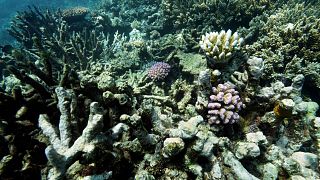Deep sea mining: Here’s which countries oppose and support the controversial practice

Finland, Germany and Portugal were among the countries that blocked deep sea mining licences.
After weeks of fierce debate, deep sea mining has failed to get approval during international talks.
The controversial practice involves removing precious metals and minerals from the ocean’s seabed. So far, only small tests have been carried out but companies were hoping to get the green light to start full-scale production.
Opponents point to the destruction it would cause to marine ecosystems and the climate.
The UN’s 36-member International Seabed Authority (ISA), which governs international waters, began a lengthy conference on the issue on 10 July in Jamaica. It ended on 28 July with more than 20 governments opposing fast-tracked licences.
However, a legal loophole remains, which could allow companies to start mining next year.
What is deep sea mining and why is it problematic?
Deep-sea mining would see heavy machinery scoop up small rocks containing rare metals and minerals from the ocean floor. These would then be pumped to the surface.
Companies are particularly interested in cobalt, nickel, copper and manganese, which could be extracted for electric car batteries and smartphones.
These precious metals and minerals have built up on the seafloor over millions of years. They form an important habitat for marine life.
Scientists have warned that such extraction could kick up silt storms and create noise and light pollution in the little-explored ocean deep.
Environmentalists are also concerned about the impact of deep sea mining on the ocean as a heat and carbon sink. Others say it could negatively impact the fishing industry.
Companies pushing for deep sea mining, however, argue that undersea mining would be cheaper and have less of an environmental impact than land mining.
Greenpeace, a vocal opponent of deep sea mining, says we should instead focus on improving recycling and reducing dependence on cars.
Where has deep sea mining taken place so far?
The ISA has issued more than 30 exploration licences but none for actual mining so far.
Most of the exploration is focused in an area between Hawaii and Mexico that spans some 4.5 million square kilometres, with the activity taking place at depths of up to 6,000 metres.
As well as debating the future of licensing, the recent conference looked at laying out regulations for the budding industry.
A deadline of 9 July was set to finalise the regulations. This is because in July 2021 the Micronesian island of Nauru announced its intention to begin deep sea mining. That announcement triggered a loophole called the ‘two-year rule’, which obliged the ISA to provisionally approve the application by July 2023, regardless of whether regulations were in place.
The regulatory framework is still stuck in draft mode, however, and will be discussed again at the body's November meeting, the third one of the year.
Which countries are opposed to deep sea mining?
A growing number of countries are calling for a temporary suspension of deep sea mining, saying they are concerned about the potential environmental impact. They want more scientific studies to be done first.
Brazil, Canada, Costa Rica, Chile, Finland, Germany, Portugal, Switzerland and Vanuatu were among the 21 countries that support a ban, moratorium or precautionary pause on deep sea mining.
China, Norway, Nauru, Mexico and the UK, meanwhile, were in support of fast-tracking licences for deep sea mining.
The next meeting of the Assembly will take place in mid-2024.
No comments:
Post a Comment